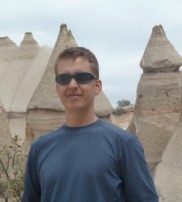Below you will find a list of Kansas State University faculty members who volunteered to host a KS-LSAMP student in their research lab during Summer 2014. We appreciate their willingness to participate in our program! THANK YOU!!
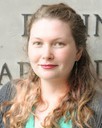 Dr. Amy Betz
Dr. Amy Betz
Mechanical and Nuclear Engineering – Mechanical Engineer
The Multiphase Micofluidics Laboratory (MM Lab) investigates multiphase heat and mass transport processes at the microscale. Both water and energy are recognized world-wide as limited and interconnected resources. Enhancing and controlling multiphase processes such as boiling and condensation can increase energy efficiency and lower water consumption in many processes such as power generation. Research within the MM Lab focuses in boiling, condensation, frost formation, microchannel heat sinks, droplet propulsion and impact, and heat exchanger fouling. Knowledge of these processes are helping the lab to develop new technologies for energy, thermal management, water desalination and biological systems.
You can read more Dr. Betz and the Multiphase and Microfluidics lab here:
http://www.mne.ksu.edu/research/laboratories/multiphase-microfluidics-laboratory
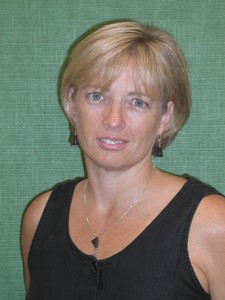 Dr. Susan Brown
Dr. Susan Brown
Division of Biology – Genetics
Research within the Brown lab focuses on evolution of gene regulatory networks, using segmentation in the red flour beetle, Tribolium castaneum as a model system. Additional projects include the use of genomic and bioinformatic techniques which focus on genome sequence of Tribolium.
You can read more about Dr. Brown and her research here:
http://www.k-state.edu/biology/people/tenure/brown/
http://www.k-state.edu/tribolium/
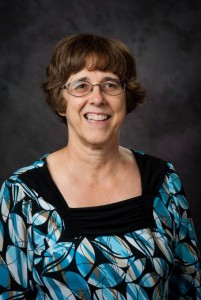 Dr. Sherry Fleming
Dr. Sherry Fleming
Division of Biology – Immunology
The focus on the Fleming lab is on the complement system and other innate immune molecules. During a hear attack, stroke or organ transplant, blood does not reach parts of the body. Stopping blood flow means the tissue and cells do not receive oxygen. The lack of oxygen damages the cells and will lead to death if blood flow is not restored. In contradiction, return of blood flow may causes even more damage. This damage is caused by components of the innate immune response including complement, toll-like receptors and natural antibodies. The primary goal of the Fleming lab is to identify and inhibit the damaging components of the immune response in multiple forms of tissue injury. Furthermore, the group is developing therapeutics which inhibit the excessive tissue damage without inhibiting the immune response.
You can read more about Dr. Fleming and her research here:
http://www.k-state.edu/biology/people/tenure/fleming/index.html
http://www.k-state.edu/fleminglab/Welcome.html
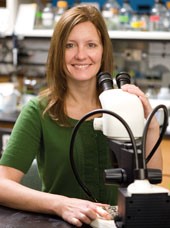 Dr. Erika Geisbrecht
Dr. Erika Geisbrecht
Biochemistry and Molecular Biophysics
The fundamental morphological events underlying skeletal muscle development are strikingly similar between humans and model organisms such as the fruit fly Drosophila melanogaster. As such, the Geisbrecht lab seeks to characterize molecules and signaling pathways in the Drosophila model that regulate: (1) the formation and stability of muscle-tendon interfaces; and (2) maintenance of mature, contractile myofibers. Understanding the molecule events that contribute to the development and homeostatis of normal muscle tissue will allow the lab to ultimately determine how defects may lead to the onset and progression of human myopathies. The Geisbrecht laboratory uses a combination of genetic, biochemical, and imaging techniques to achieve their research goals.
You can read more about Dr. Geisbrecht and her research here:
http://www.k-state.edu/bmb/department/directory/egeisbrecht/
 Dr. William Hsu
Dr. William Hsu
Computer and Information Science
The Knowledge Discovery in Databases lab group has a research emphasis in the areas of applied artificial intelligence (AI) and knowledge-based software engineering (KBSE) for decision support systems. The group looks for ways to systematically decompose analytical learning problems based upon information theoretic and probabilistic criteria, so that the most appropriate machine learning methods may be applied to the resulting transformed problems. More specifically, the group is interested in machine learning, data mining and knowledge discovery from large spatial and temporal databases, human-computer intelligent interaction (HCII) and high-performance computation in learning and optimization.
You can learn more about Dr. Hsu and the Knowledge Discovery in Databases lab here:
http://people.cis.ksu.edu/~bhsu/
http://www.kddresearch.org/
Dr. Kirk’s research focuses on subsurface biogeochemistry related to energy and water quality questions. Current studies in his laboratory include efforts to better understand how variation in carbon dioxide levels affect microbial activity in the subsurface, controls on arsenic mobility in freshwater aquifers and factors that influence biogenic natural gas formation in unconventional natural gas reservoirs.
You can learn more about Dr. Kirk and his research lab here:
http://www.k-state.edu/geology/faculty-staff/Kirk.html
http://matthewkirk.weebly.com/index.html
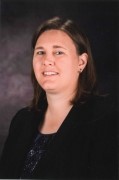 Katie Loughmiller
Katie Loughmiller
Architectural Engineering and Construction Science
Work focuses on scheduling and cost control, building material assemblies and construction technique.
You can learn more about Ms. Loughmiller here:
http://www.are-cns.ksu.edu/people/faculty/katieloughmiller/
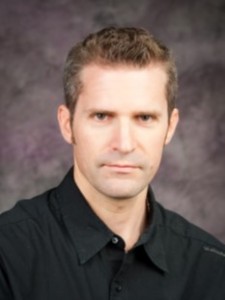 Dr. Stefan Rothenburg
Dr. Stefan Rothenburg
Division of Biology – Virology and Immunology
Research within the Rothenburg lab focuses on the interaction between viruses with the immune system of their hosts. Current studies include how viral nucleic acids are detected in vertebrates, which antiviral pathways are activated and how viral molecules interfere with these processes. Some of the lab’s major research objectives are the elucidation of the molecular mechanisms that determine virus host range and virulence.
You can learn more about Dr. Rothenburg and his research here:
http://www.k-state.edu/biology/people/tenure/rothenburg/index.html
http://www.k-state.edu/hsv/Site/Welcome.html
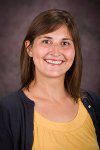 Dr. Stacey Kulesza (Tucker)
Dr. Stacey Kulesza (Tucker)
Civil Engineering – Geotechnical Engineering
Dr. Tucker’s research focuses on nondestructive testing and monitoring of deteriorating infrastructure, geophysical testing, and soil erosion potential with a goal of understanding the in situ integrity of both aging infrastructure and natural materials in order to support the global initiative of sustainability.
You can learn more about Dr. Tucker and her research here:
http://www.ce.ksu.edu/people/faculty/kulesza/
